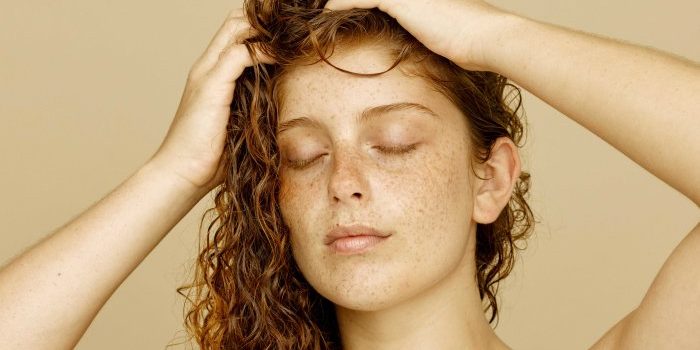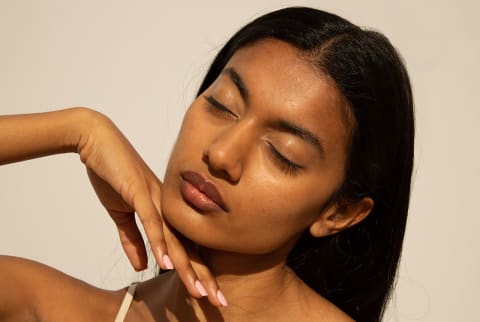
Assistant Beauty & Health Editor
Assistant Beauty & Health Editor
Hannah Frye is the Assistant Beauty Editor at mindbodygreen. She has a B.S. in journalism and a minor in women’s, gender, and queer studies from California Polytechnic State University, San Luis Obispo. Hannah has written across lifestyle sections including health, wellness, sustainability, personal development, and more.

Image by Ohlamour Studio / Stocksy
October 16, 2023
We carefully vet all products and services featured on mindbodygreen using our
Our selections are never influenced by the commissions earned from our links.
Year after year, the beauty industry leans more into the “skinification of hair,” which calls for treating the hair and scalp with the same level of care as the face. You know, exfoliants, masks, oils, and so on.
Scalp serums make up a large part of this shift, with new, buzzy formulas popping up practically every month. But still, it’s not always clear if they are entirely necessary. To come, three signs you may want to consider a scalp serum (plus a few products to try).
1.
General or localized thinning
First up, we have hair thinning. “Thinning hair is usually the result of a process called miniaturization where the diameter of the hair shaft decreases in size,” explains stylist and certified trichologist Shan Christen.
This could be due to hormone-related hair loss, stress hair loss, or simply a buildup of natural oils on the scalp—the latter can happen if you don’t wash your hair enough or frequently use heavy or tacky hair products on the scalp (think: dry shampoo).
Either way, thinning can be a sign your scalp needs extra care, specifically with a serum focused on hair growth—here’s a list of our favorites for this benefit.
There are two types of flakes you might see on the scalp: dryness and dandruff, the latter of which calls for targeted shampoos for treatment.
Technically, dandruff is seborrheic dermatitis, a form of eczema, that’s caused by a yeast called Malassezia furfur, board-certified dermatologist Raechele Cochran Gathers, M.D., tells us about the condition. These flares tend to happen for a multitude of reasons (read all about ’em here), but the most common triggers tend to be a change in weather—both cold and humid temperatures—as well as stress.
With a dry scalp, you may see symptoms such as tight skin, itchiness, flakes, ashiness, or redness—some of which overlap with dandruff.
If it’s dryness-induced flakes you see, look for a hydrating scalp serum with ingredients like hyaluronic acid and peptides. Some A+ options include the Ouai Scalp Serum and Innersense Hair Renew Daily Active Serum.
RELATED: Dandruff vs. Dry Scalp: Which Flakes Are You Dealing With + How To Treat Each
3.
Congestion around the roots
Finally, we have congestion. You may have heard this word used in the context of skin, but it certainly happens to the scalp as well. A congested scalp is generally packed with buildup from hair products, natural oils, and even dead skin.
When you peek at your roots in the mirror (and yes, you’ll have to get up close), you may see little skin visible under the buildup between strands. Or you can massage your scalp with your fingers and see if any buildup appears broken up afterward.
For buildup, you’ll want a scalp serum infused with a chemical exfoliant. Sometimes these are called “detox treatments” as well. For two great options, try the Act+Acre Exfoliating Scalp Renew and The INKEY List Salicylic Acid Scalp Treatment.
Most of the time, you should use these formulas before you wash your hair. And as a best practice, consider following up with a hydrating scalp serum (just like you’d always moisturize your face after an exfoliating treatment).
The takeaway
It’s a good idea to treat your scalp more like skin and less like hair, which includes using scalp serums when necessary. If you notice hair thinning, dryness, or product buildup, you may want the help of a mighty scalp serum. For more scalp care tips, head over to this guide.








